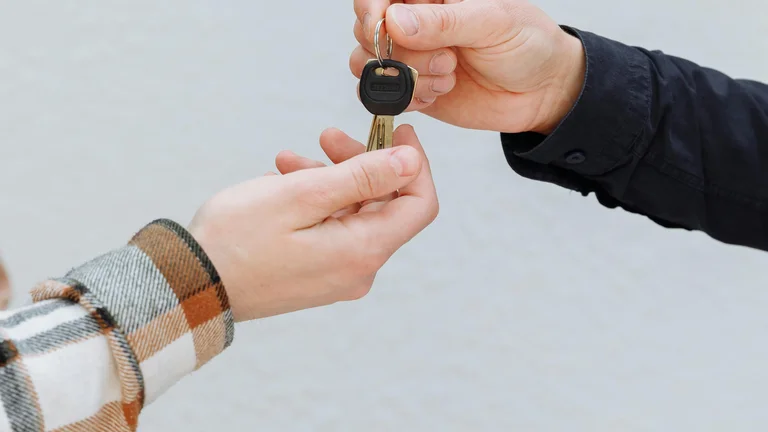
Choosing whether to lease or buy a car can be confusing. Many factors influence the decision, making it essential to understand the differences clearly. Each option offers unique benefits and drawbacks that may suit various financial situations.
Understanding Car Leasing
Leasing a car involves a long-term rental agreement. You essentially borrow the vehicle for a set period, typically two to four years. Monthly payments tend to be lower than if you were purchasing the car, making it appealing for those looking to drive a newer model without the larger expense.
One significant aspect of leasing is the mileage limit. Leases usually come with annual mileage restrictions, often around 10,000 to 15,000 miles. If you exceed this limit, you'll face extra charges, which can add up quickly. Regular maintenance and wear-and-tear during the lease period also fall under the lessee's responsibilities, and returning the car in good condition is crucial.
At the end of the lease, you must return the car to the dealership. You can choose to lease a new vehicle or walk away entirely. This flexibility appeals to many who prefer not to commit to a long-term purchase.
Understanding Car Buying
Buying a car outright means you own the vehicle once you've completed your payments. This ownership is a significant factor for many buyers. You can customize your car as desired, and there's no restriction on how many miles you can drive each year. Over time, buying can be more cost-effective compared to leasing.
However, the initial cost of purchasing a car is generally much higher. Monthly loans tend to be more expensive, which can strain budgets. When you buy a car, you're responsible for its maintenance, repairs, and depreciation value. After five years, for instance, a car may be worth a fraction of its original cost.
Despite these drawbacks, owning a car means you can sell it or trade it in whenever you want, allowing for more control over your investment.
Financial Implications of Leasing vs Buying
When weighing leasing against buying, consider the financial implications. Leases often require lower deposits and monthly payments. This affordability means you can drive a more luxurious or higher-end car than you might purchase. However, long-term costs can add up. You may end up leasing multiple cars over time, leading to continuous payments without any equity built in.
In contrast, buying may mean more significant upfront payments, but once the loan is paid off, you own the car outright. This ownership can be appealing, and keeping the car long-term can save money in the long run. It's worth noting that depreciation impacts both leasing and buying differently. Leased vehicles lose value, but the lessee is not directly affected by resale value. Buyers have to contend with depreciation, making it crucial to research model resale values beforehand.
Leasing vs Buying: Which is Right for You?
Your choice between leasing and buying often hinges on personal circumstances. If you prefer lower payments and the option to drive a new car every few years, leasing may be your best option. It affords flexibility and access to the latest features and technology.
If you plan to keep the car long-term, buying is generally the better financial choice. While higher monthly payments may seem daunting, owning a vehicle provides freedom from future costs and offers real value. It's essential to evaluate your driving habits, budget, and lifestyle needs before deciding.
Tax Considerations
Tax implications can play a significant role in the decision-making process. In many cases, lease payments are partially tax-deductible for business purposes. If you're self-employed or use your vehicle for work, this can reduce your overall taxable income. However, when buying a vehicle, tax incentives might be available depending on the car's make and model, especially electric or hybrid vehicles.
Additionally, consider state-specific tax policies. Some states charge sales tax on the entire purchase price of a car while others only tax monthly lease payments. Consulting a tax professional can provide further insights on how leasing or buying a car might affect your overall tax situation.
| Aspect | Leasing | Buying |
|---|---|---|
| Ownership | Temporary | Permanent |
| Monthly Payments | Lower | Higher |
| Mileage Restrictions | Yes | No |
| Equity Building | No | Yes |
| Customization | Limited | Full Freedom |
| Long-Term Costs | Can Add Up | Potential Savings |
FAQ - Leasing vs Buying a Car
What are the main differences between leasing and buying a car?
Leasing typically involves lower monthly payments and no ownership, while buying gives you complete ownership after payments are complete, potentially leading to long-term savings.
Can I customize a leased car?
Leased cars usually have restrictions on customization. Any modifications typically need to be approved by the leasing company.
Is leasing better for high-mileage drivers?
Leasing may not be ideal for high-mileage drivers due to mileage limits. Exceeding these limits can lead to additional fees.
Are there any tax benefits to leasing a car?
Often, lease payments may be tax-deductible for business expenses, which can be advantageous for self-employed individuals.
What happens at the end of a car lease?
At the end of a lease, you return the car to the dealership. You may have the option to lease a new vehicle or purchase the leased car.
Leasing a car offers lower monthly payments and flexibility but lacks ownership equity, while buying is more costly upfront but results in eventual ownership and potential long-term savings. The best choice depends on personal financial situations and driving habits.
Conclusão sobre Leasing vs Buying a Car.